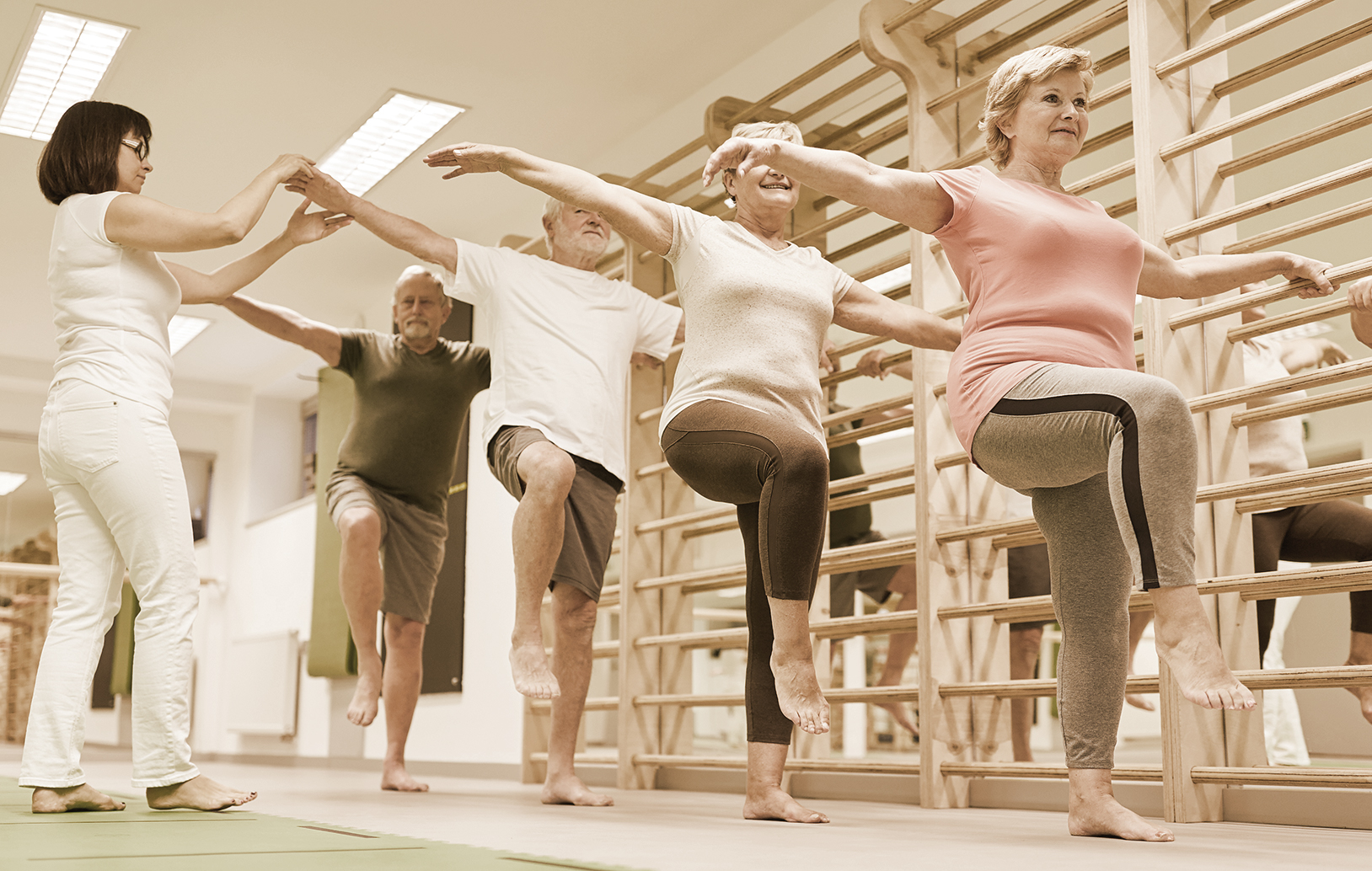Fall Prevention
Cheryl Mashore LVN, CNWC
Director, Health Education/Fitness
Return to health information page: click here.

A simple thing can change your life—like tripping on a rug or slipping on a wet floor.
Falls have the potential to be devastating and life changing. Approximately one out of ten falls among older adults result in a serious injury, such as a hip
fracture or head injury that requires hospitalization. In addition to the physical and emotional pain, many people need to spend several months recovering in a
long-term care facility; some are never able to return home. Falls are also the leading cause of injury deaths among older adults.
Falling is NOT a normal part of aging! But they do occur more often among older adults because fall risk factors increase with age and are usually associated with
health and aging conditions.
Factors that increase the risk of a fall include mobility problems due to muscle weakness or balance problems, vision changes or vision loss and loss of sensation in
the feet. Additional risks include inactivity, medication side effects and/or interactions and alcohol use. Environmental risk factors such as clutter, poor lighting, and
incorrect size, type, or use of assistive devices such as walkers and canes also increase the risk of a fall.
Falls seldom "just happen." Taking care of your health and improving home safety can greatly decrease your risk of experiencing a life changing fall.
The good news is that falls can be prevented; the fear of falling doesn't need to rule your life. Instead, consider these simple fall-prevention strategies.
-
Begin a regular exercise program. Exercise is one of the most important ways to lower your chances of falling. It makes you stronger and helps you feel better.
Exercises that improve balance and coordination are the most helpful. Lack of exercise leads to weakness and increases your chances of falling.
-
Have your health care provider review your medications. Have your doctor or pharmacist review all the medications you take, even over-the-counter medications.
As you get older, the way medications work in your body can change. Some medication, or combinations of medications, can make you sleepy or dizzy and can increase
your risk of falling.
-
Have your eyes and hearing tested regularly. You may need a new prescription or have a condition like glaucoma or cataracts that limits your vision. Poor vision
can increase your chances of falling. Always wear your glasses when you need them. If you have a hearing aid, make sure it fits well, and wear it.
- Limit the amount of alcohol you drink. Even a small amount can affect balance and reflexes.
-
Make your home safer. About half of all falls happen at home. To make your home safer: Remove things you can trip over (like papers, books, clothes, and shoes)
from stairs and places where you walk. Remove small throw rugs or use double-sided tape to keep the rugs from slipping. Have grab bars put in next to your toilet and
in the tub or shower. Use non-slip mats in the bathtub and on shower floors. Improve the lighting in your home. Have handrails and lights installed on all staircases.
Wear shoes both inside and outside the house. Avoid going barefoot or wearing slippers.
- Stand up slowly after eating, lying down, or sitting. Getting up too quickly can cause your blood pressure to drop, which can make you feel faint.
-
Wear sensible shoes - rubber-soled, low-heeled shoes that fully support your feet. Wearing only socks or shoes/slippers with smooth soles on stairs or floors
without carpet can be unsafe.
Remember to always tell your doctor if you have fallen since your last checkup, even if you aren't hurt when you fall. A fall can alert your doctor to a new medical problem
or problems with your medications or eyesight that can be corrected.
High Desert Medical Group offers a variety of free workshops and classes that help our members stay safe and reach their individual health and fitness goals. For more
information, call our Health Education Department at 661-951-3375.





